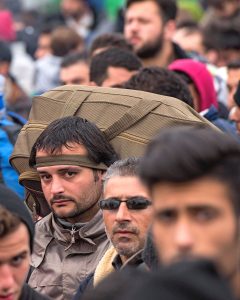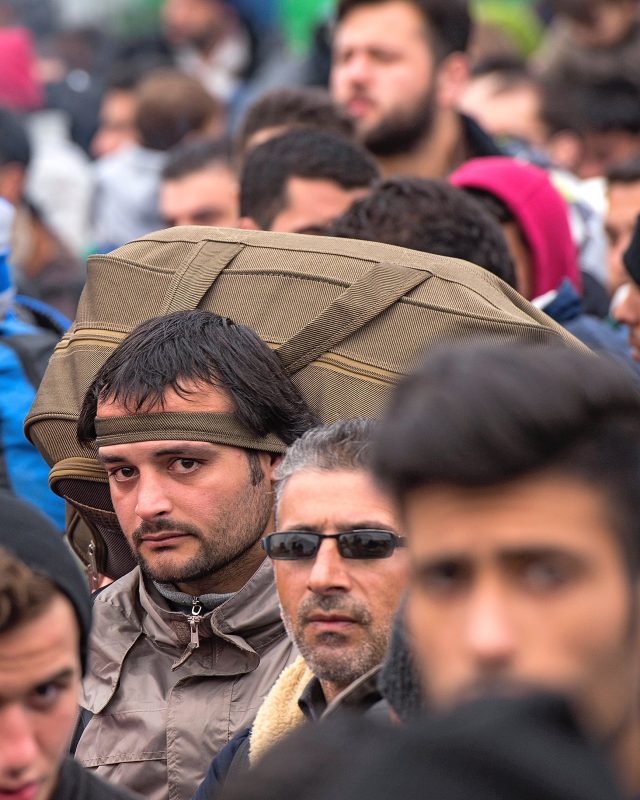by MICHAEL OTTO
When one sees refugees through the eyes of faith, we see something very different from common social stereotypes like “queue jumpers” and “illegal aliens”.

Refugees and migrants from Iraq and Syria wait for permission to leave a registration and transit camp near Gevgelija, Macedonia, on February 24.
That was a message driven home time and again by immigration lawyer Richard McLeod at a Catholic Young Professionals gathering in Auckland on February 24.
The founder of McLeod and Associates, Mr McLeod has won thousands of immigration and asylum cases at departmental, appellate and court levels.
He was involved with the high profile Ahmed Zaoui case.
The talk he gave to the young professionals group was entitled “Individuals versus the state, and the work of a Catholic refugee lawyer”.
At one point he showed images of a Palestinian woman with her young son struggling at an Egyptian border post. “Look at the photo through Catholic eyes, and tell me what you see?”
After some prompting, the answer came: “The Holy Family.”
Mr McLeod told the young people that Pope Pius XII had written in his apostolic constitution Exsul Familia Nazarethana that “the émigré Holy Family of Nazareth, fleeing into Egypt, is the archetype of every refugee family”.
“When you start looking at the world and the refugee crisis, it is amazing how often you see Our Lady the refugee, not to mention St Joseph,” he said.
Mr McLeod presented a list of biblical refugees, including such notables as Adam and Eve, Cain, Noah, Abraham and Sarah, Isaac and Rebecca, Joseph, Moses, the entire nation of Israel (more than once). “The Bible is full of refugees,” Mr McLeod said.
In biblical terms, being a refugee is “almost a badge of honour” and it seems characteristic of God to cherish refugees. Mr McLeod set out some historic contexts to today’s refugee crises, noting that at the start of last year there were almost 60 million forcibly displaced persons worldwide, up by nearly 50 per cent from 2011. Then he spelled out three basic principles in Catholic teaching on this issue.
First, people have the right to migrate to sustain their lives and the lives of their families; second, a country has the right to regulate its borders and to control immigration; third, a country must regulate its borders with justice and mercy.
Commenting on those principles, Mr McLeod said a nation can’t just decide to provide for its own people and no other.
“I truly believe that the answers to our global refugee problems are found in these three principles,” he added. He then set out the codification of refugee and migrant rights in international laws, treaties and conventions. Citing the Universal Declaration of Human Rights, he said “everyone has a right to asylum from persecution”.
He noted that New Zealand is bound by international law and accepts and settles 750 refugees each year. Over and above this, New Zealand has allocated 750 places for Syrian refugees over three years — 600 of which are on top of the annual quota.
Mr McLeod said the annual quota are “the ones we like, they are the ones we control”.
He said it is not surprising that many refugees arrive in New Zealand with false passports, as they are fleeing persecution from the very authorities which issue passports.

Reader Interactions